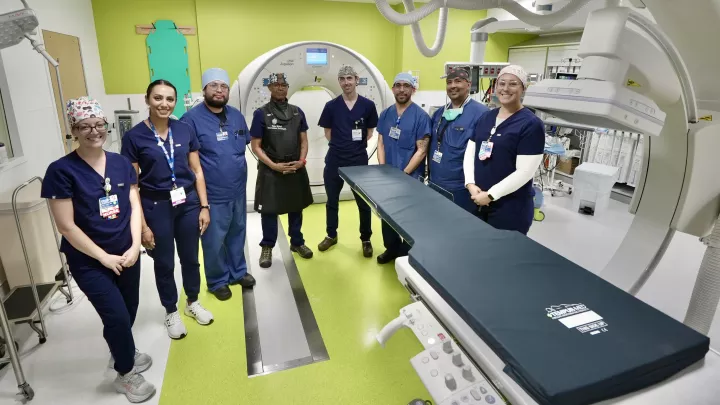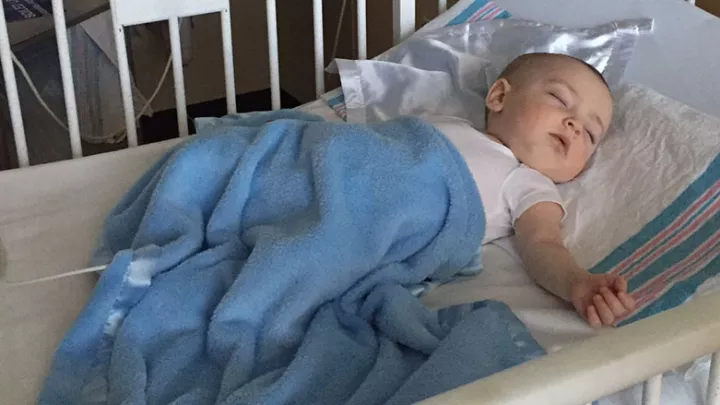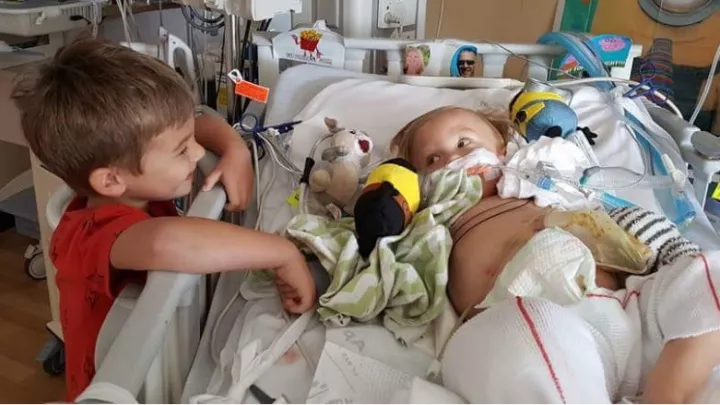Parkes Weber Syndrome (PWS)
Parkes Weber syndrome (PWS) is a rare vascular anomaly that is congenital. Hallmark characteristics of this condition include:
- Capillary malformations
- Arterio-venous malformations/fistula(e) (AVM/AVF)
- Hemi hypertrophy of the affected extremity
- Lymphatic malformation or lymphedema
People with multiple capillary malformations may have a mutation of the RASA1 gene. About 30% of affected individuals also have associated arteriovenous malformations (AVMs) and/or arteriovenous fistulas (AFVs), which are fast-flow vascular anomalies that typically arise in the skin, muscle, bone, spine and brain. These can be associated with life-threatening complications including abnormal bleeding and heart failure. Symptoms from intracranial AVMs/AVFs appear to occur early in life.
People with Parkes Weber syndrome who do not have multiple capillary malformations are unlikely to have mutations in the RASA1 gene; in these cases, the cause of the condition is unknown.
When Parkes Weber syndrome is caused by mutations in the RASA1 gene, it is sometimes inherited from an affected parent.
Diagnosis:
You/your child will meet with the Vascular Anomalies Center team during the initial clinic visit for a comprehensive review of the patient’s medical history, any imaging studies and/or laboratory tests that have been performed, and a complete physical examination. The medical specialists will then confer and diagnose the condition and propose a treatment plan.
Additional testing may include:
- Doppler ultrasound
- MRI of affected extremity and brain
- Coagulation studies
- Genetic testing of the affected individual and parents
Treatment:
As with many of these combined disorders, no cure currently exists. Treatment modalities are conservative and based on symptoms exhibited. Management involves a coordinated effort by several specialists including interventional radiologists, plastic reconstructive surgeons, general/vascular surgeons, neurosurgeons, dermatologists and orthopedic surgeons.
Treatment may include embolization, surgical debulking of tissue overgrowth and procedures or orthotics to manage limb length discrepancies. Capillary malformations can be treated with laser therapy if troublesome. If the associated AVM/AVF is affecting heart function, a consultation and management by a cardiologist may be needed. Affected individuals should be referred to a geneticist for testing as well as counseling when indicated.


